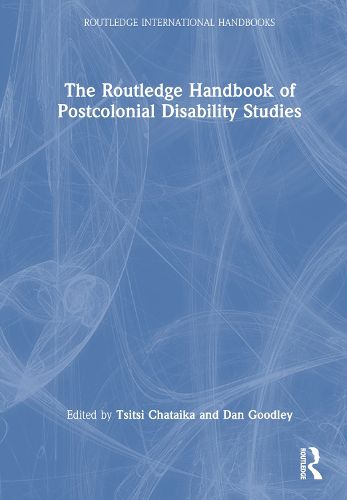The Routledge Handbook of Postcolonial Disability Studies

The Routledge Handbook of Postcolonial Disability Studies
This book centres and explores postcolonial theory, which looks at issues of power, economics, politics, religion and culture and how these elements work in relation to colonial supremacy. It argues that disability is a constitutive material presence in many postcolonial societies and that progressive disability politics arise from postcolonial concerns. By drawing these two subjects together, this handbook challenges oppression, voicelessness, stereotyping, undermining, neo-colonisation and postcolonisation and bridges binary debate between global North and the global South.
The book is divided into eight sections
Setting the Scene Decolonising Disability Studies Postcolonial Theory, Inclusive Development Postcolonial Disability Studies and Disability Activism Postcolonial Disability and Childhood Studies Postcolonial Disability Studies and Education Postcolonial Disability Studies, Gender, Race and Religion Conclusion
And comprised of 27 newly written chapters, this book leads with postcolonial perspectives - closely followed by an engagement with critical disability studies - with the explicit aim of foregrounding these contributions; pulling them in from the edges of empirical and theoretical work where they often reside in mainstream academic literature.
The book will be of interest to all scholars and students of disability studies and postcolonial studies as well as those working in sociology, literature and development studies.
This item is not currently in-stock. It can be ordered online and is expected to ship in approx 2 weeks
Our stock data is updated periodically, and availability may change throughout the day for in-demand items. Please call the relevant shop for the most current stock information. Prices are subject to change without notice.
Sign in or become a Readings Member to add this title to a wishlist.


